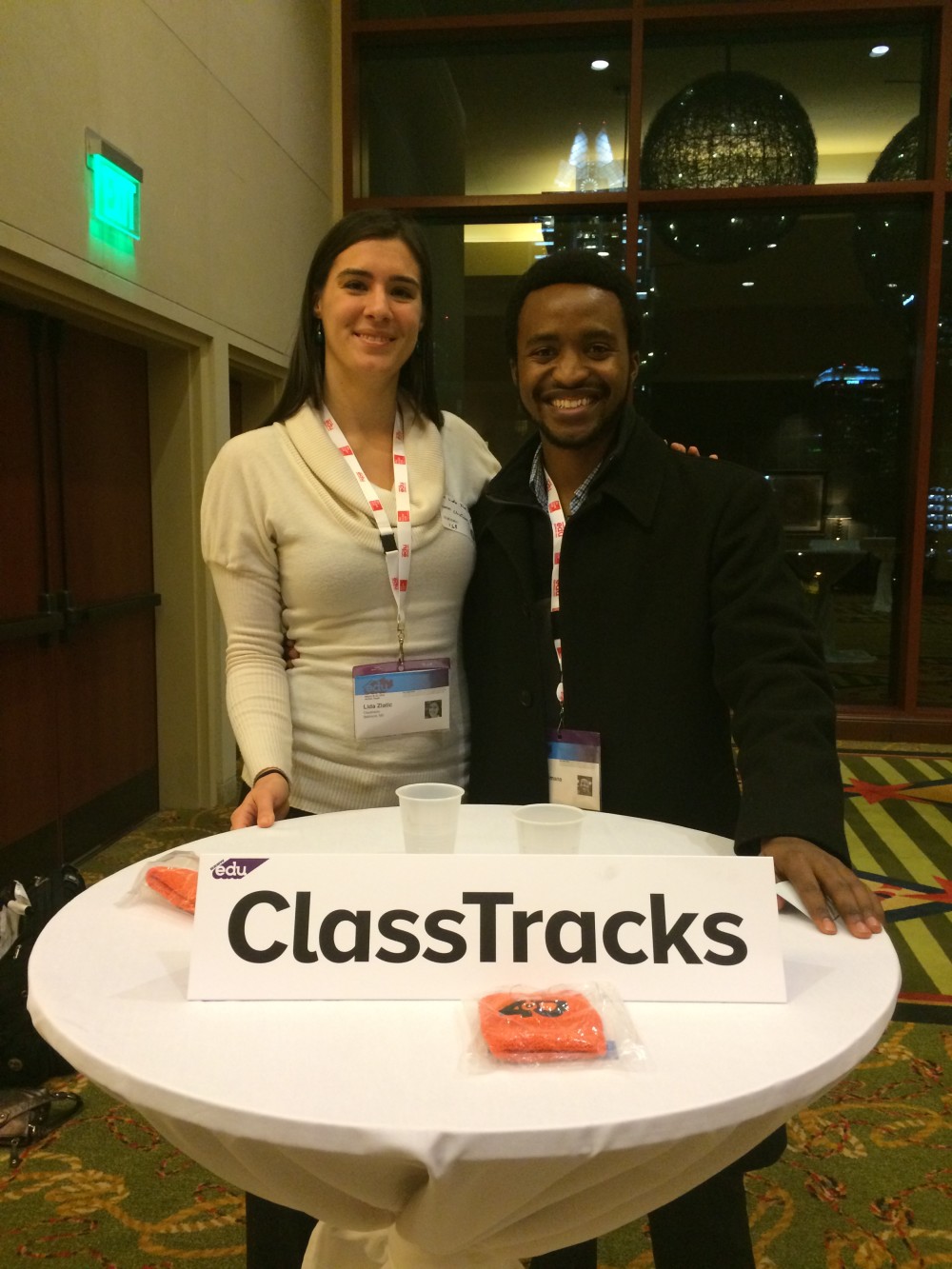At a Startup Weekend event focused on edtech in July 2014, Lida Zlatic and Jamel Daughtery were surprised to find that none of the people pitching their idea were educators.
Being the only two teachers in the room, they were also surprised to find that they had similar ideas.
“I happened to be in line right behind her, and we happened to pitch the exact same idea,” Zlatic said.
They wanted to create a digital tool for foreign language education that had a way for teachers to use their own materials. Zlatic, who has a master’s in secondary Spanish education, saw similar tools work for math, and she thought foreign language could benefit.
With fellow cofounder Thierry Uwilingiyimana (who they also met that weekend) and two others, they’ve been working to build ClassTracks. The team participated in the three-month accelerator program at New Orleans-based 4.0 Schools. Edtech leader Katrina Stevens helped connect the team with the edtech community in Baltimore, and they now work at the Emerging Technology Centers campus in Highlandtown.
Recently, ClassTracks received $100,000 in funding from TEDCO’s Technology Commercialization Fund, said Zlatic. Under new regulations adopted by the quasi-public agency earlier this year, the startup could be in line for an additional $100,000 if they reach certain benchmarks.
The company will use the funding to further develop its first product, which is designed to teach vocabulary. Zlatic compares it to Duolingo in the sense that it is a tool to teach students foreign language. But the key difference for ClassTracks is that it allows teachers to bring their own curriculum, allowing them to use the platform to reinforce what is being taught in the classroom.
Initially based on a flash card system Zlatic came up with in high school, Zlatic said the idea is to have students do “less drill, and more communication.”
The platform, which could be available in every language except Mandarin, allows kids to go through the vocabulary at different levels like a game. When students are finished, they get data about what words they learned. That data is also available to teachers.
The startup conducted 10 pilots in California, Baltimore and D.C., and have since launched an open beta.
Right now, the platform remains in development. Zlatic said they plan to charge $99 per teacher, rather than sell to school districts in the U.S. The team believes the product can gain a lot of traction at private foreign language schools in Europe, Korea and elsewhere, where there is less red tape involved in introducing a new tech tool.
Unlike the U.S., “If they decide something is worth their money, then they can purchase it,” Zlatic said.
Before you go...
Please consider supporting Technical.ly to keep our independent journalism strong. Unlike most business-focused media outlets, we don’t have a paywall. Instead, we count on your personal and organizational support.
Join our growing Slack community
Join 5,000 tech professionals and entrepreneurs in our community Slack today!

The person charged in the UnitedHealthcare CEO shooting had a ton of tech connections

From rejection to innovation: How I built a tool to beat AI hiring algorithms at their own game

Where are the country’s most vibrant tech and startup communities?


